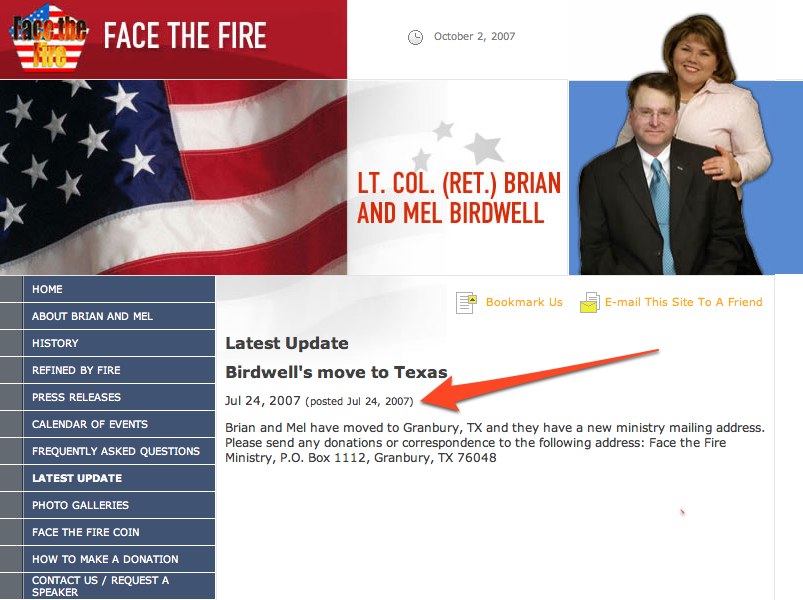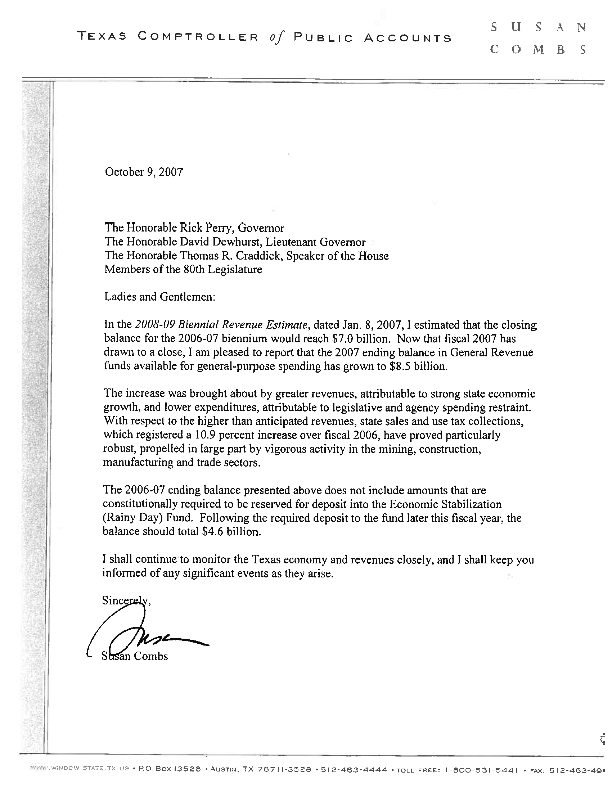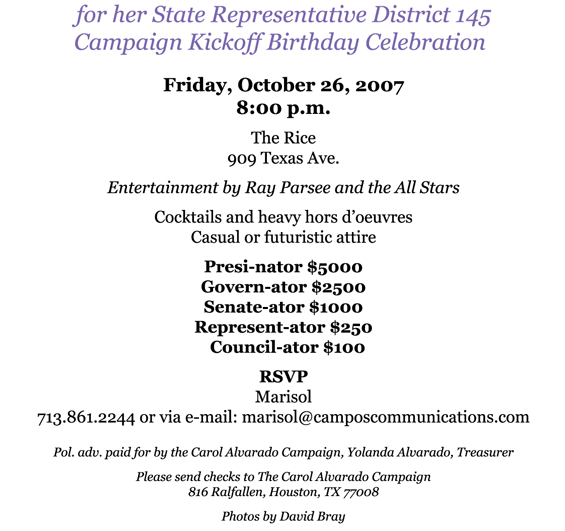Clunky as it is, "Northwest Austin Municipal Utility District Number One" is a familiar name in election law circles.
A lawsuit filed on behalf of the tiny voting district — a "MUD" serving some 3,000 people outside Austin (in an area bounded by Loop 620, Parmer Lane and McNeil Drive) — has some observers predicting the downfall of an integral provision of the Voting Rights Act, depending on the mood of the U.S. Supreme Court.
Lawyers on both sides have made their arguments in the MUD's suit. It now awaits judgment from a three-judge panel in Washington, D.C.
The gist is this: the MUD wants to "bail out" of VRA Section 5, which requires nine states (including Texas) and parts of seven others to seek "pre-clearance" from the feds before altering anything related to elections. This includes redistricting, changing the number of elected officials in a town, or even, in the case of the MUD, proposing to move a polling place from a family's garage to the school down the road.
The states and regions covered by Section 5 got there because of historic discriminatory election practices as of 1972 — like badly behaved kids having to show their parents that they're finished with their homework before they can go play, while their brainy siblings come and go at will.
The coverage formula hasn't been updated in more than 30 years. And instead of parents, oversight is in the hands of the Department of Justice or a three-court panel from D.C.
The MUD suit raises a question: Is the 30-year-old coverage formula unfair to states like Texas, while places like Arkansas and Oklahoma aren't under the same scrutiny?
"We're not dumber than Arkansas. We should be able to do this just like West Virginia or Kentucky," says Edward Blum, a visiting fellow at the D.C.-based American Enterprise Institute for Public Policy Research.
Blum, a former longtime Houston resident who splits his time between Washington and Austin, also runs the Project on Fair Representation Legal Defense Foundation, which is providing resources to MUD attorney Greg Coleman and acting as co-counsel for the MUD.
Coleman formerly clerked for Associate U.S. Supreme Court Justice Clarence Thomas and was Solicitor General under then-Attorney General John Cornyn.
In 1992, Blum, then in the investment business, ran for Congress as a Republican in Houston's CD-18. He lost to Democrat Craig Washington but won a Supreme Court case where he argued that the redistricting plan was unconstitutional. Blum says he's been involved with election and race-based law ever since.
The VRA does have a provision where a county can "bail out" of Section 5 scrutiny if it shows it has cleaned up its act and is election-friendly to all ethnicities.
So the second MUD questions is: Can so-called sub-jurisdictions — like the MUD — "bail out" of Section 5, or does this have to occur on a county-by-bounty basis?
This is the MUD's primary aim in court, says Blum. "We're not looking to strike down Section 5," he says. "We're trying to get the right of sub-jurisdictions to bail out."
Whatever the D.C. panel decides, lawyers on the losing side will most likely appeal to the Supreme Court, which recently took on another hot-button election law case dealing with a photo ID requirement to vote in Indiana.
"They will almost certainly hear the [MUD] case, regardless of what happens," says Rick Hasen, a professor at Loyola Law School in Los Angeles. (Hasen wrote the book on election law, literally; it's called Election Law: Cases and Materials.")
When the VRA was up for reauthorization last year, Hasen argued before the Senate Judiciary Committee that the outdated coverage formula could pose constitutional problems for the Act if it comes before the Supreme Court (Cornyn, a member of that committee, agreed with Hasen in a report to the full Legislature). Hasen also argued that the law should make it easier for jurisdictions to bail out of Section 5.
Blum and Hasen identified a few possible courses of action the Court could take, assuming the judges hear the case at all:
1) It could reject the MUD's claims and leave Section 5 alone.
2) It could rule that sub-jurisdictions have the right to seek a bailout, while upholding the constitutionality of the rest of Section 5.
3) It could rule that sub-jurisdictions do not have the right to bail out, so Section 5 is unconstitutional because these well-behaved districts are being punished unfairly.
Hasen isn't predicting that the Court will strike down Section 5, but if it does, it would be up to Congress to patch things up, whether that means updating the coverage formula and/or changing the bailout provision.
If Texas escapes from Section 5, then lawmakers will be free to redraw districts as they please after the 2010 census, and it will be up to individuals to challenge the legality of the new districts without the added firepower of the Justice Department. The successful challenges to parts of Texas' 2003 redistricting plan weren't based on Section 5, but on citizen lawsuits.
In 2006, the Court upheld the plan as a whole but invalidated one district, CD-23, saying it violated a different part of the VRA that applies to all 50 states.
The DOJ rejected a Texas statehouse redistricting plan in 2001, but hasn't turned down a congressional plan since 1992.
Blum points out that states under Section 5 have cleaner election records than states not under the restraints. Hasen, though, sees the fairly good recent track record as possible evidence that current statute is working — not that Texas can be trusted if freed from Section 5 and left to its own recognizance.
"Part of the reason why Texas may not have had any denials, they've learned what they need to do to get DOJ clearance," he says. "If you don't need DOJ clearance anymore, plans might change."
Blum argues that if Section 5 is struck down, citizens in Texas who suspect foul play in redistricting would have the same recourse as residents in other states — as LULAC did here in 2003, and as he did in 1992.
If the courts upset Section 5, Blum foresees similar lawsuits cropping up soon. Hasen says it's hard to guess what the justices will do.
While the Supremes have upheld the VRA twice, in 1980 and 1996, this is the first time they'll be looking specifically at Section 5.
"This is the test case," Hasen says.
Ashley Burton, a spokesperson for Texas Secretary of State Phil Wilson, who is in charge of Texas' elections, said they couldn't comment on the lawsuit yet.
— by Patrick Brendel
Hodge Indicted
Rep. Terri Hodge, D-Dallas, was one of more than a dozen people indicted in a complicated federal case involving federal housing programs.
The federal indictments, handed up a week ago but made public this week, accuse Hodge of accepting money from Brian and Cheryl Potashnik in return for using her position as a state legislator to help their interests, including Southwest Housing Development Co. and its affiliates.
The indictment contends Hodge lived in one of the company's units and was a member of the company's board, and "acting in her official capacity as a state representative, submitted letters to the [Texas Department of Housing and Community Affairs] in support of SWH tax credit projects located in her district and sought the support of other elected officials for SWH projects located in other districts."
She's accused of signing letters drafted by SWH in support of their projects that went out on her official state representative letterhead.
In return for her assistance, the indictment accuses, Hodge accepted rent subsidies, utility payments and new carpeting for a house she owns in Dallas.
In the indictments, Hodge is charged with:
• Conspiring to commit bribery concerning a state government receiving federal benefits;
• Accepting bribes as an agent of a state government that receives federal funds;
• Falsifying her income tax returns over a five-year period by failing to report income.
Most of the indictment revolves around related charges involving Dallas municipal government and outside consultants. Hodges was the only state official mentioned in the indictments.
A copy of the 166-page indictment is available here, and the best history of the case is available from The Dallas Morning News at this link. The indictment isn't searchable; you'll find references to Hodge starting on pages 23, 26, 43, 45, and 159. The indictments start with a description of the housing programs at the center of the case.
He Said, She Said
A House Democrat called out the Republicans for their election efforts against incumbent House members. One called back.
If Texas Democrats pick up five statehouse seats next year, the 150-member House will be evenly divided between the two parties.
That's not a prediction — no oracles here — but an indication of how close things are and an explanation for why the warriors on both sides are fighting so hard.
The latest round started with a memo to Democrats from Rep. Jim Dunnam, who heads the House Democratic Caucus. He's accusing Republican House members of campaigning against Democratic House members (that's standard election fare, as is the denial that it's standard election fare) and using that as a rallying point for Democrats.
And he went further, calling out former Rep. Arlene Wohlgemuth, who's now a lobbyist, as a leader of House Speaker Tom Craddick's effort to recruit Republicans to run against the speaker's adversaries. And he named her clients and "wondered" if they know what she's doing and whether her involvement constitutes an endorsement of her activities by those clients.
She wrote back, accusing him of making an implied threat against her clients and asking for a retraction. She said she's no longer a public official and said, "As a former colleague, I would not expect you to seek to damage a private citizen's business nor be injurious to her person..." She also said she has not been retained by Craddick, as Dunnam contended.
Dunnam's memo ended with a snap at Democrats who support Craddick's reelection as speaker, saying they ought to "publicly state so now." His pitch ended with a rallying cry: "... [S]tay on top of what is going on with your Democratic House colleagues. Remember that what the Republicans are trying to do to them, they are doing to you."
Second Thoughts
Brian Birdwell, a survivor of the 9/11 attack on the Pentagon, was touted as a possible opponent to Rep. Jim Keffer, R-Eastland.
Birdwell filed papers naming a campaign treasurer, but according to the Ethics Commission, withdrew them last month.
We couldn't reach Birdwell, but he'd have had a problem with the challenge: Though he's a Fort Worth native, Birdwell apparently moved to the state earlier this year from his home in Manassas, Virginia. That means he wouldn't have been eligible to serve, since you've got to have been a resident of the state for two years before you're on the general election ballot for state office. Check the move date he listed on his website: July 24, 2007. He'd have had to be in Texas by November 1, 2006 to make this work.
The Kink in the Hose
Congressional action on children's health insurance won't have an immediate effect in Texas even if Congress overrides the president's veto.
The State Children's Health Insurance program (state folk call it CHIP; feds call it SCHIP) is maxed out here because of legislative action — not because of federal rules. The size of the Texas program, at least right now, isn't limited by federal funding. The size of the program here was set by the Texas Legislature, and officials with the state Health and Human Services Commission say Texas isn't even doing everything allowed now — much less what would be allowed if the federal government increases funding and expands its program. A spokeswoman there says the agency has "significant carry-forward" of federal CHIP money.
That said, the state's U.S. senators split on the vote, with Kay Bailey Hutchison saying she supports President George W. Bush but wanted to honor commitments made in Texas. John Cornyn said he supports CHIP but not the version Congress passed and Bush vetoed.
This is one of the few issues that can get you beat in Texas, depending on how it's presented to voters and who is and isn't eligible for the benefits. After budget cuts in 2003 shrunk the CHIP rolls, U.S. Rep. Chet Edwards, D-Waco, fought off a challenge by the author of those cuts, state Rep. Arlene Wohlgemuth, R-Burleson, in part with a series of commercials focusing on what she'd done and who got hurt.
Every state politician we know — and most of the candidates — is aware of that story. They're unusually attuned to the politics of the issue.
If the federal bill became law, and if the Texas Legislature expanded its CHIP program to maximum allowable size, the program could add over 400,000 kids to the insured ranks here. That would require higher state spending and legislative action before any changes could take place in Texas, but the option won't be there unless the federal requirements change first.
Buddy's Back
His departure was a confirmed the-sky-is-blue-the-grass-is-green sure thing at the end of the legislative session, but Rep. Buddy West, R-Odessa, has letters out saying he'll seek another term in the Texas House. "Let's make it known that Buddy will be back," he writes.
Two other candidates jumped in before West made his intentions completely known (he's been flirting with a change of heart almost since the session ended). Tryon Lewis and William "Randy" Rives both filed campaign treasurer reports — the first official sign of a campaign — earlier this year. Rives filed in May, while lawmakers were still in session. Tryon expressed his official interest in HD-81 in July.
Political Notes
The Texas Ethics Commission has a handy link on their website that tells you — to the current day — who's got campaign treasurer reports on file. That's one of those reports that used to be buried in the paper stacks. There's a link on the campaign reporting page, or you can just click here to download today's version.
• Filings include two folks running to succeed Rep. Dianne White Delisi, R-Temple: Martha Tyroch, a Temple City Council member, and Ralph Sheffield Jr., owner of a Temple restaurant (Las Casas) and a former president of the Texas Restaurant Association. Others have talked about that contest.
• Two folks are lined up to replace Fred Hill, R-Richardson, when he leaves his HD-112 seat after the next elections. Angie Button and Randall Dunning have both filed campaign paperwork with the state.
• Rep. Mike O'Day's HD-29 seat has attracted three official candidates: Randy Weber, who lost to O'Day in a special election earlier this year, Kevin Murphy, and Craig Kelsay.
• Democrat Rick Noriega raised $570,000 in the three months ended September 30, an amount he says puts him ahead of three of the five Democrats who successfully challenged Republican incumbents for U.S. Senate seats in the last election cycle. His opponent in the Democratic primary, Mikal Watts, hasn't reported his numbers yet; the reports are due October 15.
• Pete Olson of Sugar Land raised $211,000 during the last 45 days for his challenge of U.S. Rep. Nick Lampson, D-Stafford. Olsen is one of several Republicans seeking the party nomination. He'll do a funder later this month with his former boss, former U.S. Sen. Phil Gramm.
• All fired up: "State Senator Chris Harris enthusiastically announced today that he is running for re-election to Senate District 9." That was their lead sentence, not ours, but it answers any questions about whether he wants to come back. Harris, an Arlington Republican, has been in the Lege for 22 years.
• Paula Stansell of Sugar Land says she'll challenge Rep. Charlie Howard, R-Sugar Land, in next year's GOP primary. She's a member of the planning and zoning board there and a Republican precinct chair and a program manager for Houston Community College.
Here's Laughing at You, Kid
A TV news story on ghost voting in the Texas Legislature is making the national rounds -- proof that nothing ever goes away once it's on the Internet. This video was hot, briefly, in Texas when the story ran. Now, via You Tube, it's getting national play, pushed by voting groups and blogs around the country.
Reading is Fun
The Adventures of Tom Sawyer and The Adventures of Captain Underpants both made the list of books banned or challenged in various Texas schools this year. The list, compiled by the Texas chapter of the ACLU, doesn't attempt any distinction between bans you'd like and bans you wouldn't, but it's an interesting snapshot of the State of the Culture. The perennials — like Harry Potter, To Kill a Mockingbird, and The Color Purple — are there, along with some books that are new or that might have evaded your attention, like Bride of the Living Dummy and The Earth, My Butt & Other Big Round Things. They've got the list posted on their website.
Political People and Their Moves
Andrew Weber, formerly the Clerk of the Texas Supreme Court, will rejoin one of his former bosses, Attorney General Greg Abbott. Weber will be deputy attorney general for legal counsel, acting as a legal advisor to state agencies and overseeing the AG's open records and opinions divisions. A former briefing attorney to then-Justice Abbott, he left state government last year and has been a partner with Kelly Hart & Hallman, a Fort Worth-based law firm.
Quotes of the Week
Sharon Keller, chief judge of the Texas Court of Criminal Appeals, telling the Austin American-Statesman why she blocked late filings that would have delayed the September 25 execution of Michael Richard, who's case was pending in federal court: "I got a phone call shortly before 5 and was told that the defendant had asked us to stay open. I asked why, and no reason was given... And given the late request, and with no reason given, I just said, 'We close at 5.' I didn't really think of it as a decision as much as a statement."
Fordham Law School professor Deborah Denno, quoted in The New York Times: "I do think Texas is reaching a turning point. It's not unusual throughout the country, but it is unusual in Texas. And not uncommonly when people are talking about the death penalty, there's Texas and everywhere else, because Texas seems to be in its own death penalty world."
State Sen. Rodney Ellis, D-Houston, on the potential exoneration of Ronnie Taylor, who's been on death row for a dozen years, and his own push for an innocence commission to review cases: "In no other sphere of public policy would rational people see this many disasters and not be willing to pull together a panel of experts to ask what went wrong and what can be learned from those tragic mistakes to prevent them from happening again."
Joan Covici of Dallas, a supporter of Rep. Terri Hodge, D-Dallas, on Hodge's indictment for allegedly using her influence to help a Dallas developer, in the Austin American-Statesman: "If these details are correct, this must be what it takes to get first-class, low-cost housing in Dallas — a city that has never been friendly to minorities — especially Blacks and Hispanics."
Dallas lawyer Cheryl Wattley, arriving at the federal courthouse in Dallas with her client, former City Council member James Fantroy, to reporters, quoted in The Dallas Morning News: "I am not making any comment except to say, 'Get out of our way.'"
Former U.S. House Majority Leader Tom DeLay, talking to a group of college Republicans about Travis County District Attorney Ronnie Earle, quoted in the Houston Chronicle: "It's not good enough to beat you in ideas or politics, they will put you in jail, they will destroy you — that is their objective. It's frightening — district attorneys are unaccountable and there's nothing you can do to them."
Baptist Rev. Benjamin Cole of Texas, quoted by The Wall Street Journal on the ties between evangelicals and the GOP: "We wake up each morning and see an elephant on the pillow next to us."
Texas Weekly: Volume 24, Issue 16, 8 October 2007. Ross Ramsey, Editor. Copyright 2007 by Printing Production Systems, Inc. All Rights Reserved. Reproduction in whole or in part without written permission from the publisher is prohibited. One-year online subscription: $250. For information about your subscription, call (512) 302-5703 or email biz@texasweekly.com. For news, email ramsey@texasweekly.com, or call (512) 288-6598.






